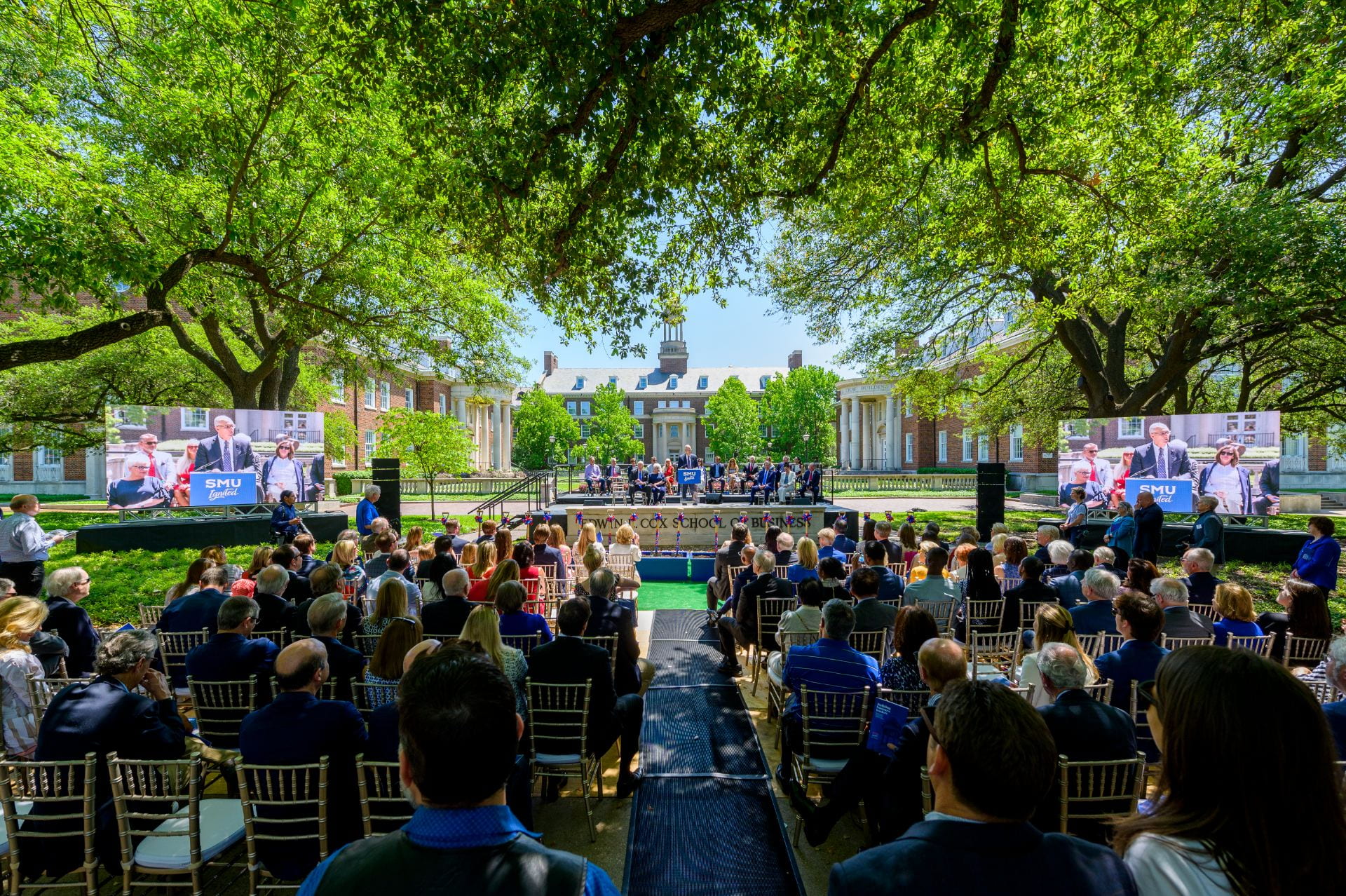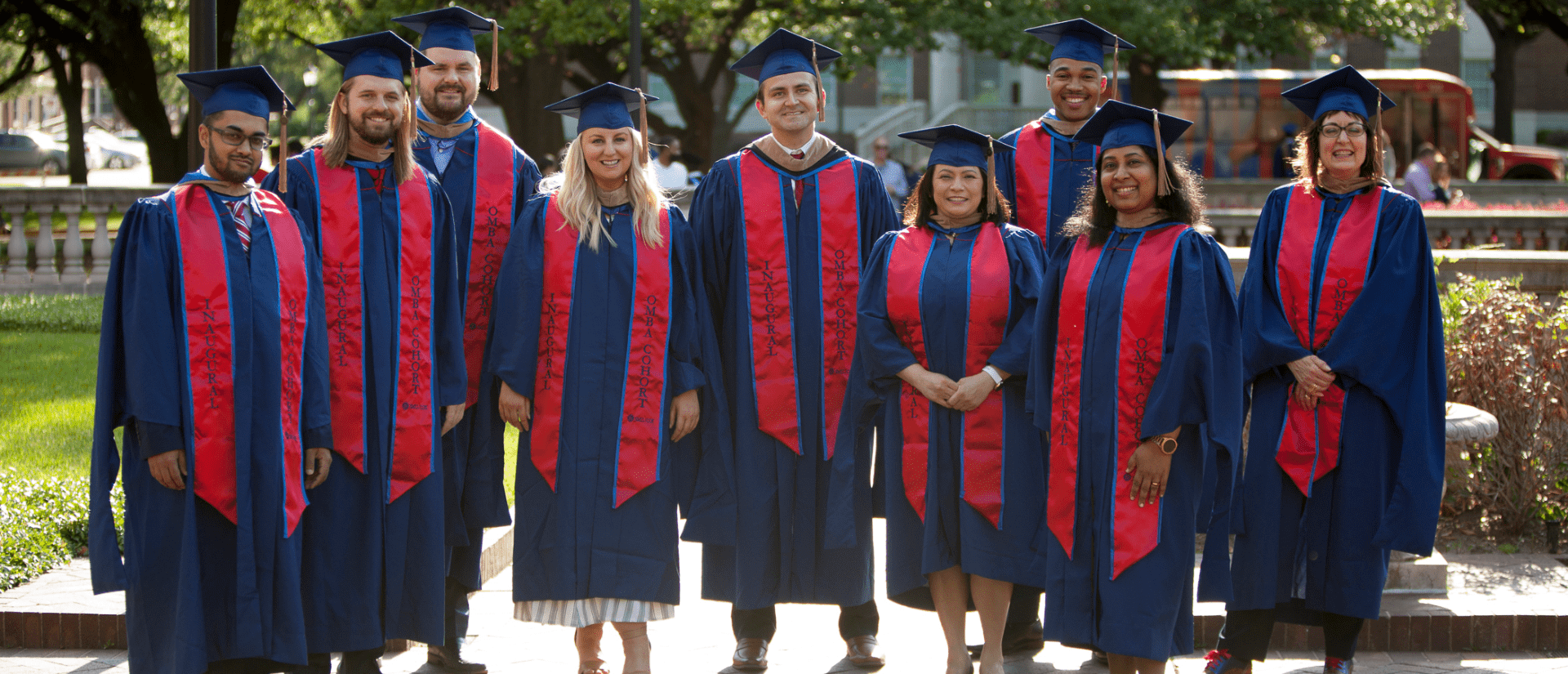By 2050, nearly one in three Americans will be of Latino descent, according to U.S. Census predictions. But while 19% of the U.S. workforce today is Latino, those workers represent less than 2% of Fortune 500 CEOs, according to the Hispanic Association on Corporate Responsibility.
“Latinos are the first minority group to get to a midlevel management role, but then oftentimes they get stuck there,” says Ana Rodriguez, Cox BBA class of 2003 alumna and managing director of SMU Cox School of Business’s Latino Leadership Initiative (LLI) since 2017.
That means the LLI’s mission has never been more relevant. Launched in 2013, it is the only executive education program in the United States focused exclusively on identifying and cultivating today’s and tomorrow’s Latino business leaders. The program takes a holistic approach to diversity and inclusion, working with everyone from local schools and nonprofits — where LLI alumni mentor students in underserved communities — to national business organizations and Fortune 500 companies, which the LLI helps to recruit, develop and retain high-performing Latino executives.
“We’re the only executive education-based program that looks at Latino talent development from middle school all the way up to the boardroom,” Rodriguez says. “We’re preparing not just today’s Latino business leaders but future ones as well.”
Fostering Executive Leadership
Cox’s Executive Education first began offering the Corporate Executive Development Program (CEDP) in 2010. Its success led the School to establish the Latino Leadership Initiative, of which CEDP is now a part. CEDP was created to help Latino managers move past that dead end. Now the LLI’s flagship program, the intensive one-year course trains high-potential middle managers for executive leadership positions. In 2016, building on the success of the CEDP, the LLI launched its Rising Latino Leaders (RLL) program, a weeklong development program aimed at boosting the careers of first-time managers. Both programs have been a boon to their corporate sponsors, not to mention their many executive-level alums. “We have an 85% promotion rate among graduates of our CEDP, and a 92% promotion and advancement rate for our Rising Latino Leaders,” Rodriguez says.
Under Rodriguez’s leadership, the Latino Leadership Initiative has experienced enormous growth, bringing thought leaders together for on-campus programs and symposiums and working with an ever-expanding pool of companies to identify Latino talent. Over the years, the initiative has accelerated the careers of more than 250 senior managers at more than 60 Fortune 1000 companies. In 2020, the LLI saw record enrollment in all of its programs. “To date, we’ve had over 300 people go through our programs, and 150 of them have been in the last three years,” says Rodriguez.
As a finance major at Cox, Rodriguez was the first in her family to go to college. After graduation, she divided her time between working in the Global Wealth and Investment Management division of Bank of America and serving as executive director of the Anita N. Martinez Ballet Folklorico, a nonprofit performing arts organization. Leadership positions at UNT Dallas, where she received her MBA, and at UTD’s Naveen Jindal School of Management, soon followed.
As a result of this firsthand experience, she has helped scores of first-time and midlevel Latino managers move up the executive chain — but that’s not the initiative’s sole purpose, she says. “Our programs don’t just benefit Latinos. Ultimately, they benefit the company, which benefits the entire workforce.”
Inspiring Younger Generations
Participants are not only a valuable networking resource for their fellow alums, they are encouraged — and according to Rodriguez, expected — to give back to their communities by mentoring high school students, serving as keynote speakers on college tours and participating in leadership summits. They’re there to inspire and mentor the kids, Rodriguez says, “but it really does inspire the graduates too. It reminds them how far they’ve come, and that’s just a very powerful message.”
John Starkweather, an associate vice president of marketing at AT&T, took part in the CEDP in 2018. “Ana sets a tone of authenticity and transparency,” he says. “She and the instructors, mentors and staff truly care about the students and continue to stay close with alumni. They’ve created a community of Latino leaders who all realize they have a greater calling to open doors for those who follow.
Maria Lamas, a 2018 RLL alum and VP-associate general counsel at Nationstar Mortgage, found her experiences invaluable. “As a Hispanic leader, it has been hard finding programs that are really tailored to our culture and the unique value that we contribute to the organizations we work for,” she says. “The RLL program teaches you how to use your culture as a strength and really develop a leadership style that is true to who you are.”
Looking to the Future
Next spring, the Latino Leadership Initiative will pilot the Women in Leadership program, and it’s currently working to create inclusive leadership training sessions focused on educating non-minorities on the value of diversity. Rodriguez also hopes to do more work with individual companies on custom programs tailored to their organization’s specific needs. “When I think about the next five years, that’s really where I see us going. Inclusion is the ultimate goal,” she says. It’s Rodriguez’ dedicated work with the LLI that is helping advance that goal and inspiring potential growth in other areas of leadership training.
She attributes much of the organization’s ongoing success to the culture and people at the School. “Having a reputation like SMU Cox definitely does help,” she says. “But I think it also has to do with our leadership here. Our dean is very committed to diversity and inclusion. It’s not just something we talk about; it’s something we do. And I think when you have that type of culture, it’s easy to get companies to buy into it.”
Click here to learn more about how SMU Cox School of Business is committed to diversity and inclusion on its campus and beyond.













